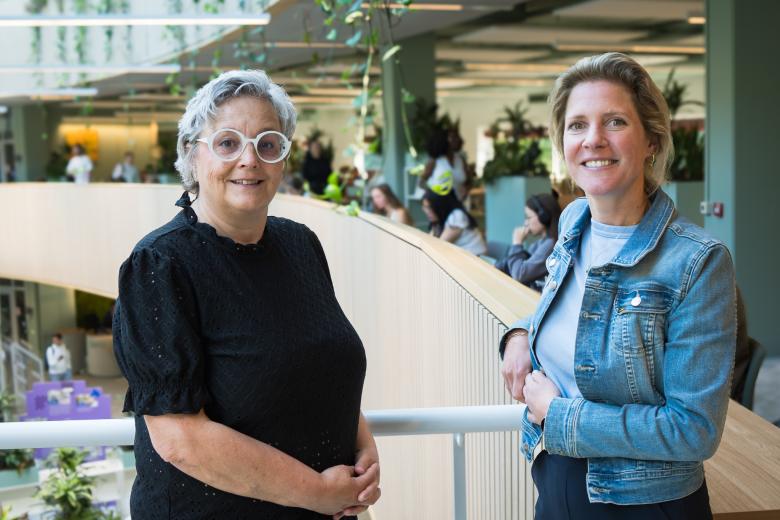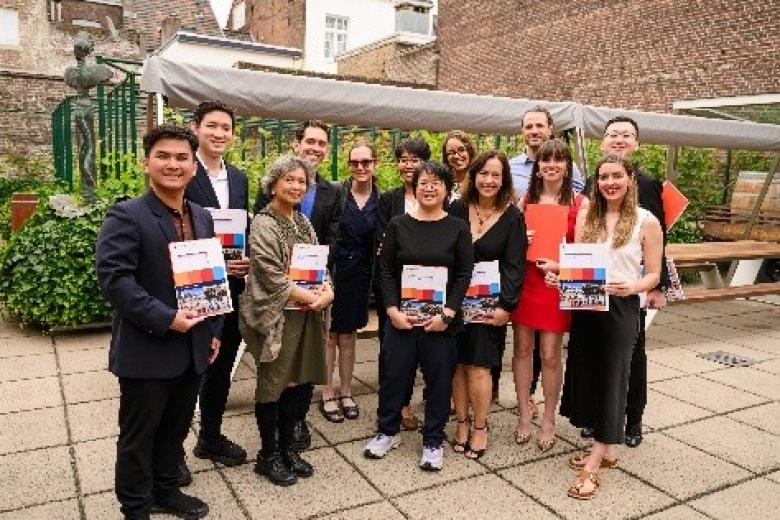Sanne Houben: the effects of two therapies on memory
Sanne Houben (Department of Clinical Psychological Sciences) has been with the Faculty of Psychology and Neuroscience since she started the Bachelor in Psychology at UM. After completing the programme, she obtained her master’s degree in Psychology and Law (now Legal Psychology). During her bachelor’s she worked as a Research Assistant in the Forensic Psychology group, continuing even after getting her master’s degree. When the vacancy for her current PhD position came up, she applied and started her work on the project: The effect on memory of two therapies. 1: Eye movement desensitisation and reprocessing (EMDR) and 2: Imagery rescripting.
Eye movement desensitisation and reprocessing
EMDR is a therapy used for people with Post-Traumatic Stress Disorder (PTSD). The therapist initiates eye movements by moving their finger in front of the patient’s face. During these eye movements, the patient has to think about the traumatic experience. Patients will not have the capacity to fully focus on the memory. As a result, the vividness and negative emotions associated with the traumatic memory will decrease.
Imagery rescripting
Imagery rescripting is an intervention where a patient chooses the most intrusive event of a traumatic experience, and a therapist instructs the patient to “rescript” this event. What would they want to have happened at that time? What would they have liked to do in that moment? What could have happened if they acted differently? The idea is that in this way you will mould the memory into something that is easier to cope with for the patient.
Do these treatments affect memory?
Sanne’s job now is to see how these interventions affect memory. EMDR has been proven to be an effective method for the treatment of PTSD. But it isn’t clear what the actual effect is on the traumatic memories. Does the memory stay the same? Does it worsen? Are they replaced with “pseudo memories”?
Sanne will specifically focus on these pseudo memories (i.e., memories of events that did not happen). The questions she is asking is “can it be that patients will start to remember things that didn’t actually happen?”.
She recently finished her first experiment in her project. The rationale is that after EMDR, a therapist could ask follow-up questions. Sometimes these questions may be suggestive, or therapists may fill in the blanks. In this moment the patient can be exposed to misinformation. “We wanted to research how susceptible individuals are to misinformation, after performing eye movements, as used in EMDR.”
Halfway there
Results showed that people who performed eye movements were less accurate in their memory test, and they reported more misinformation. These results indicate that the use of eye movements is something to take into account when, for example, people are called as witnesses in court cases. It may be possible that due to the EMDR treatment, they misremember the traumatic event and base their statement on these new memories.
Sanne is half-way through her PhD trajectory of 4 years, and we will keep following her progress. Towards the end of her project we’ll check in to see what insights she has gained.
Also read
-
Randwyck Library and the river of knowledge
Monique Notermans and Meike Kerkhofs-Welkenhuizen witnessed the vision behind a modern library come to life.

-
M-EPLI PhD Research Spotlight on Blessing Eze
M-EPLI PhD researcher, Blessing Eze, is examining the role of private documents in regulating global value chains.

-
MHPE: Looking back and going forward
During the MHPE Campus Period last month we welcomed a new cohort of MHPE students and enjoyed seeing back those who are starting up their Master thesis projects. We are now preparing to hand over to a new MHPE Management Team that will take over on the 1st of September 2025.
